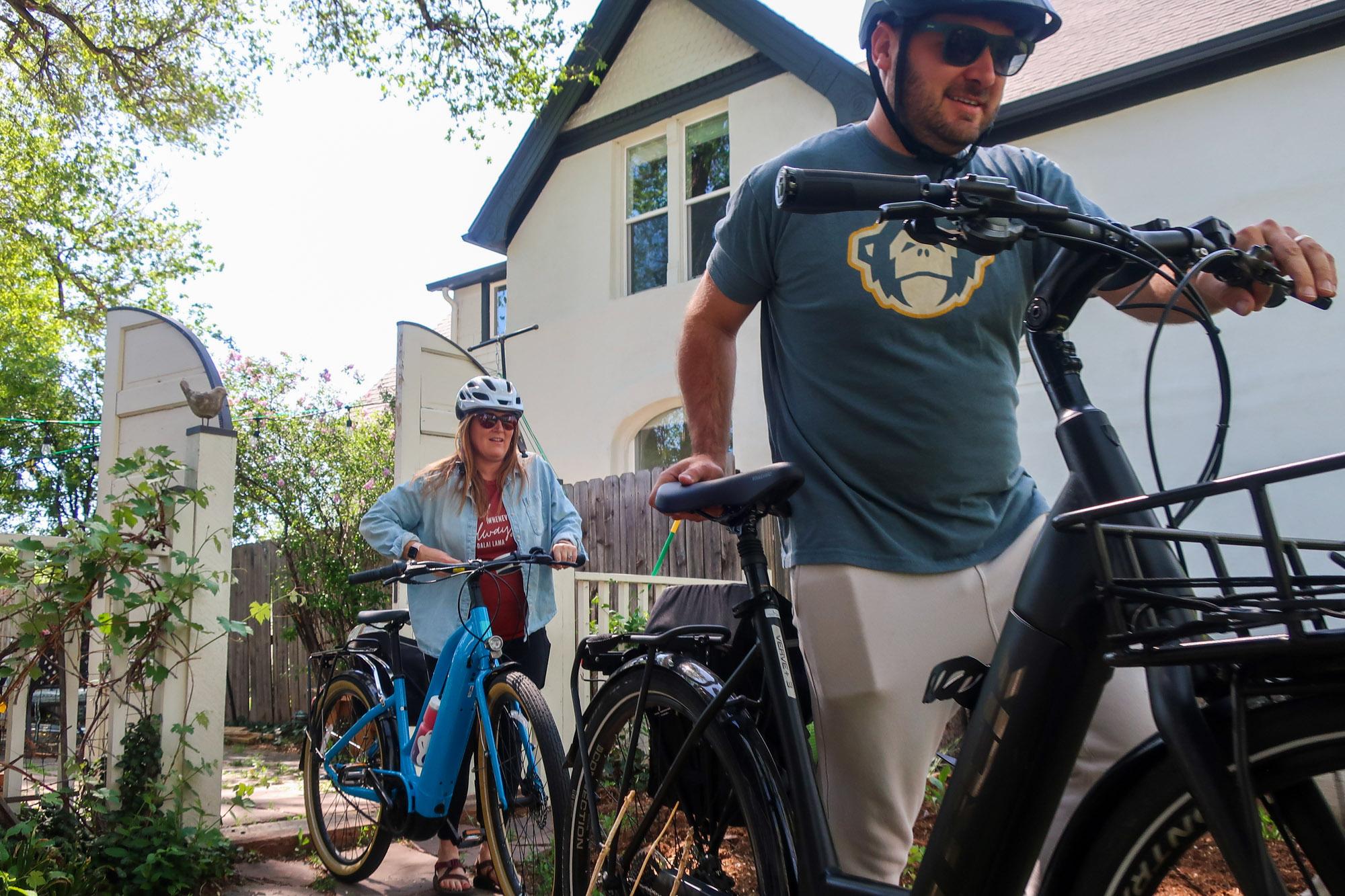Update Oct. 24: Denver's e-bike rebate program has been paused for the rest of the year and is expected to reopen in early 2023 because the funding for it has been exhausted, according to a press release from the city. Those with rebate vouchers already in hand can still use them within 60 days of issuance.
Our original story follows below.
Anyone planning to apply for one of Denver's popular e-bike vouchers could be out of luck for the next few months.
The city's Office of Climate Action, Sustainability & Resiliency funded the rebate through a $9 million contract approved by Denver's city council. It was meant to finance the incentives through 2024 in addition to other discounts on home solar systems and all-electric heat pumps.
It now appears the e-bike program has succeeded beyond the city's wildest expectations. Since it launched last April, more than 4,100 Denver residents have redeemed vouchers worth more than $4.1 million. That's far more than the $300,000 to $400,000 officials planned to spend on e-bikes in the first year of the program.
"We are thrilled by the popularity," said Grace Rink, the director of the city climate office. "We thought the funding would last for three years but we used it all up in less than six months. We are adding more funding to the program now and planning to come back strong in 2023."
Let's get clear on one thing: None of this means e-bike rebates are going away.
Rink said her office will ask the city council to amend the contract to add about $6.5 million to fund e-bike incentives in 2023 and 2024. The money will come from a voter-approved sales tax dedicated to climate and resiliency projects.
There's a chance the city could open applications for one more round of discounts this year. About 900 residents have not yet redeemed rebates that were issued during the latest round, according to a city spokesperson. Those vouchers expire after two months.
If enough residents let the discounts lapse, the city might have the resources to issue one final set of e-bike rebates in November. Officials are carefully monitoring redemption rates to decide their next steps.
Equity has been one issue hanging over the bike program since its inception.
The city offers all residents $400 for an e-bike purchase. Low- to moderate-income residents can qualify for a $1,200 discount. An extra $500 can be tacked to either rebate for the purchase of a cargo e-bike, which can often accommodate additional passengers or grocery runs.
The tiered approach was designed to meet an obligation outlined by the original ballot measure: the city should try to invest at least half of its climate investments in projects to support racial and social justice.
It appears the city met the requirement in the first year of its e-bike program. Residents have redeemed a nearly equal number of standard and income-qualified vouchers. Seventy percent of the total spending has gone toward income-qualified rebates.
But none of those metrics reveal if the rebates are actually helping to reduce the city's climate-warming emissions. At an electric vehicle event in Jefferson County on Wednesday, Mike Salisbury, who leads sustainable transportation projects for the city, emphasized the rebates are one piece of a larger effort to make residents less dependent on cars.
"We think e-bikes have a lot of potential to replace car trips and give people more mobility options, more ways to get around," Salisbury said.
Early data collected through an app show rebate recipients have been riding their e-bikes, but the measurements come from a small, self-selected sample. More research is needed to confirm whether Denver is on its way to becoming E-bike City, U.S.A.













